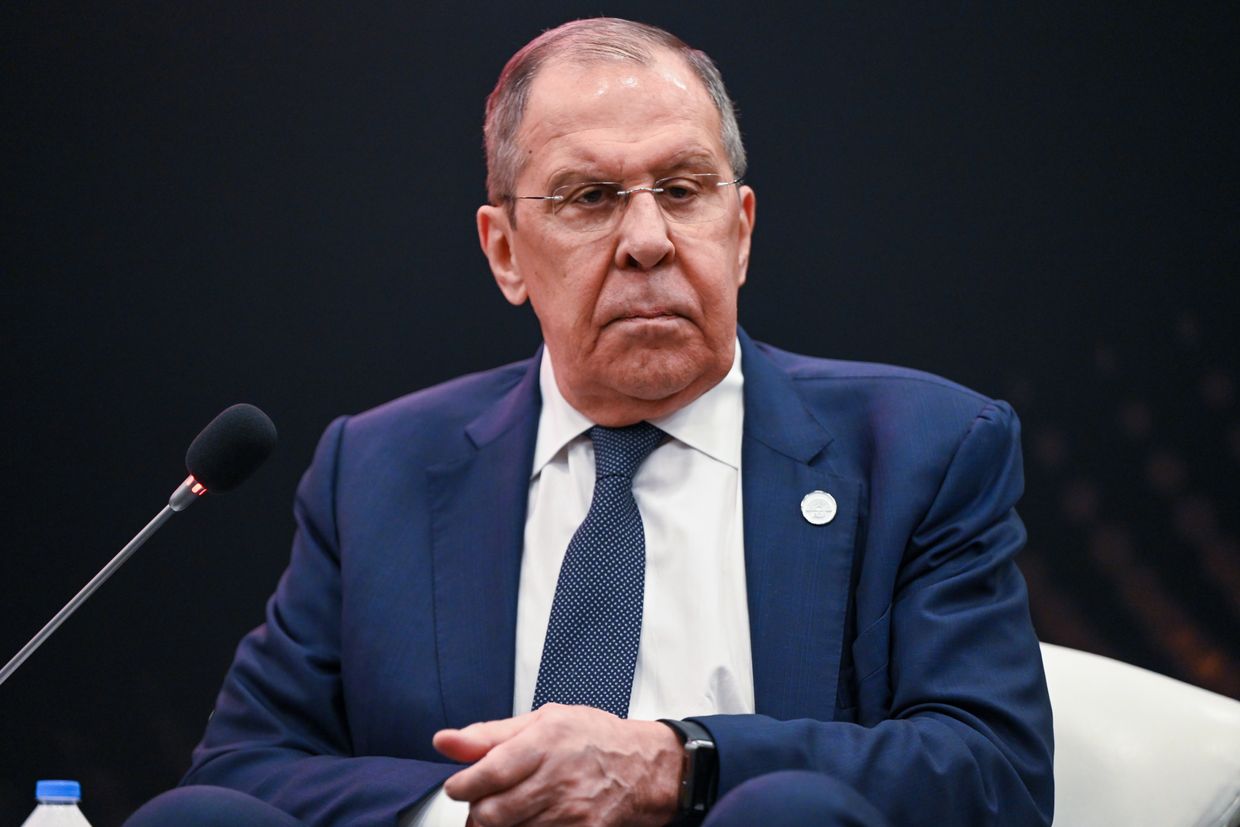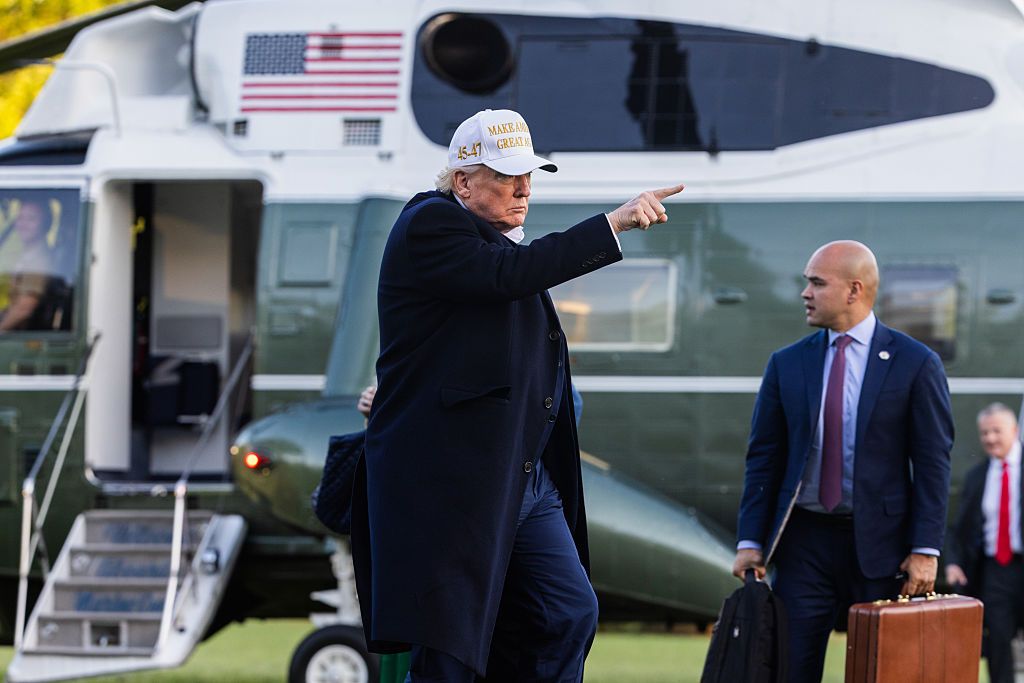"I have great hope that an agreement for a ceasefire in Ukraine will be reached this weekend," German Chancellor Friedrich Merz said on May 9, shortly before traveling to Kyiv alongside the leaders of France, Poland, and the U.K.
U.K. Prime Minister Keir Starmer, French President Emmanuel Macron, German Chancellor Friedrich Merz, and Polish Prime Minister Donald Tusk will arrive in Kyiv early on May 10.
The United States embassy in Kyiv on May 9 issued a warning that Russia could launch "a potentially significant" attack in the coming days, despite Putin's self-declared Victory Day "truce."
The sanctioned oil tankers have transported over $24 billion in cargo since 2024, according to Downing Street. The U.K. has now sanctioned more shadow fleet vessels than any other country.
The sanctions list includes 58 individuals and 74 companies, with 67 Russian enterprises related to military technology.
Washington and its partners are considering additional sanctions if the parties do not observe a ceasefire, with political and technical negotiations between Europe and the U.S. intensifying since last week, Reuters' source said.
Despite the Kremlin's announcement of a May 8–11 truce, heavy fighting continued in multiple regions throughout the front line.
Putin has done in Russia everything that Luiz Inacio Lula da Silva had been against in Brazil.
The Kyiv Independent’s contributor Ignatius Ivlev-Yorke spent a day with a mobile team from the State Emergency Service in Nikopol in the south of Ukraine as they responded to relentless drone, artillery, and mortar strikes from Russian forces just across the Dnipro River. Nikopol is located across from the Russian-occupied Zaporizhzhia Nuclear Power Plant in the city of Enerhodar.
Russia demands recognition of Crimea, other Ukrainian regions' annexation in any peace talks

Russia insists on the international recognition of its hold over Crimea, as well as the entirety of Ukraine's Donetsk, Luhansk, Zaporizhzhia, and Kherson oblasts, as a condition for peace negotiations, Russian Foreign Minister Sergey Lavrov said in an interview with Brazilian news outlet O Globo published on April 28.
This demand, reinforced last week by Kremlin spokesperson Dmitry Peskov, underscores how Russia continues to push its maximalist demands despite the U.S. efforts to broker a peace deal.
Russia illegally declared the four Ukrainian oblasts as annexed in 2022 following widely condemned sham referenda, but it does not fully control the territories. Crimea, occupied by Russia since 2014, was also included in Moscow’s territorial claims.
The U.S. is reportedly considering a de jure recognition of Russia's control over Crimea as part of a potential peace deal and de facto control over other occupied territories. At the same time, U.S. officials are said to have rejected a demand for Ukraine's complete withdrawal from the other four regions.
Asked about Russia's conditions to enter peace talks, Russian Foreign Minister Sergey Lavrov also named a ban on Ukraine's entry into NATO, the country's demilitarization, and changes to Ukraine's legislation that would restore the position of the Russian language, culture, and religious organizations.
These conditions are effectively the same as the initial demands raised by Moscow at the start of its full-scale invasion of Ukraine.
Lavrov also said that Ukraine's ban on direct negotiations with Russian President Vladimir Putin must be lifted. Previously, the Kremlin said that Putin would be ready to enter talks with Kyiv without "any preconditions" once this restriction was removed, seemingly contradicting Lavrov's later statements.
Ukraine has ruled out ceding its territory as part of any peace agreement, and both Kyiv and its allies have rejected demands for a reduction of the Ukrainian Armed Forces.
"All of Kyiv's commitments must be legally guaranteed, have enforcement mechanisms, and be permanent," Lavrov said, adding that Russia also demands the lifting of Western sanctions, the abolition of international lawsuits and arrest warrants against Russian officials, and the return of frozen Russian assets.
Western governments have already begun using money linked to those assets to support Ukraine. In October 2024, the Group of Seven (G7) approved nearly $50 billion in loans for Kyiv, to be repaid using interest earned on frozen Russian funds.
Additionally, Lavrov said Moscow would demand "reliable security guarantees" from NATO, the European Union, and their member states against supposed future threats on Russia’s western borders.
Lavrov said Russia remains open to negotiations but claimed "the ball is not on our side," accusing Kyiv of lacking "political will for peace." He also said that the U.S. "has begun to better understand" Russia's positions, hinting at the foreign policy shift brought about by U.S. President Donald Trump.
It has been more than 45 days since Ukraine accepted a U.S.-proposed 30-day ceasefire first introduced in March. Moscow rejected the plan, demanding a complete halt to Western military aid to Ukraine.
Despite claiming to support de-escalation, Russia has continued offensive operations along the front lines. Moscow has also intensified its attacks on civilian infrastructure, most recently killing 13 people in an attack on Kyiv on April 24.
Meanwhile, a separate partial ceasefire covering Ukraine’s energy infrastructure, brokered during talks in Saudi Arabia in late March, has also been repeatedly violated.
According to Ukraine’s Foreign Ministry, Russia has breached the energy truce more than 30 times since it came into effect on March 25, targeting critical power infrastructure across the country.

Most Popular

After 3 years of full-scale war in Ukraine, Europe announces plan to ban all Russian gas imports

Ukraine, Europe's ceasefire proposal includes US security guarantees, no recognition of Crimea, Reuters reports

Journalist Roshchyna's body missing organs after Russian captivity, investigation says

After Russia's deadly attack on Kyiv, Vance reposts denunciation of Zelensky

Ukrainian sea drone downs Russian fighter jet in 'world-first' strike, intelligence says
Editors' Picks

How medics of Ukraine’s 3rd Assault Brigade deal with horrors of drone warfare

As Russia trains abducted children for war, Ukraine fights uphill battle to bring them home

'I just hate the Russians' — Kyiv district recovers from drone strike as ceasefire remains elusive



